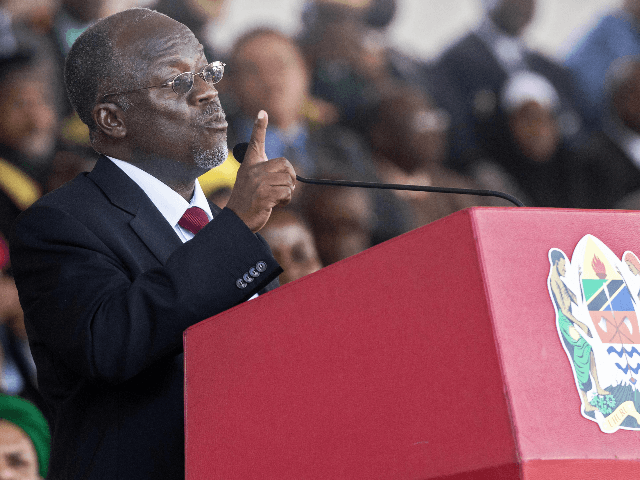President of Tanzania John Magufuli on Wednesday called for international lenders, particularly the World Bank, to forgive existing African loans instead of offering new loans to help rebuild the continent’s economies after the Wuhan virus pandemic.
“African countries’ economic capacity is not the same as that of developed countries. Instead of offering more loans to fight corona, they should forgive debts,” Magufuli said in a televised address to his defense and security chiefs.
Magufuli expressed appreciation for the World Bank’s offer of fast-track financing, but argued that debt forgiveness would be more helpful than asking impoverished nations that suffered economic damage from the coronavirus to take on even more debt, no matter how attractive the terms. He noted that Tanzania spends over $300 million in U.S. dollars on debt repayment and about half of it goes to the World Bank.
“Since the World Bank has shown its concern and willingness to help us out of this pandemic, allow me to request that that help should come in the form of a relief on repayment of existing debts, or at least its interest,” he said.
“I would request, fellow African countries, that our rich brothers should consider a debt relief for us instead of getting us into a new burden of loans for which they will demand interest,” he continued. “It would make economic sense if the loan was reflected in debt relief. That, I think, would be a good gesture for these financial institutions toward poor countries.”
Magufuli also criticized what he saw as fearmongering and political opportunism over the coronavirus and resisted calls to impose a lockdown, instead recommending simple social distancing techniques and local herbal remedies. He described these herbal treatments, including onions, as “important and scientific.”
“Not everyone who gets the coronavirus dies,” he said. “Not everyone who dies, dies of Covid-19. We should fight fear, which is itself a more dangerous thing than Covid-19.”
Tanzania’s official coronavirus count stood on Friday at 284 cases and ten deaths, most of them in the commercial hub of Dar es Salaam. Magufuli said Tanzania cannot afford the economic damage from a quarantine.
“There are calls to lock down Dar es Salaam. We will never do that. This is our main port city and accounts for around 80 percent of government revenue,” he said on Wednesday.
The health and economy of Africa are major concerns for international organizations from the United Nations to the Organization of Islamic Cooperation and the World Bank, but the latter has been lukewarm at best on Tanzania’s coronavirus program.
AFP noted this week that a spate of stories has appeared in Tanzanian and African media claiming the World Bank praised Magufuli’s administration for its handling of the pandemic, but none of that praise actually appears in any official World Bank document.
The World Bank felt it necessary to release a statement denying that it has offered any “specific mention or assessment of Tanzania’s Covid-19 response.” Instead, the bank’s analysis recommends African nations should “customise their Covid-19 responses to fit the structural features of their economies.”
The World Bank has predicted the coronavirus will knock sub-Saharan Africa from a projected 2.8 percent growth rate for 2020 into an outright recession of between two and five percent, exacerbated by the effect of cratering prices on economies that depend upon oil revenue. Also, the worldwide loss of production and demand for products such as automobiles has reduced demand for the metals sold by African nations.
Of course, persuading lenders to underwrite even low-interest loans with very protracted repayment terms is very different from persuading them to take billions of dollars in losses by writing off existing loans.
African officials told the G-20 meeting in mid-April that short-term debt relief offered by their creditors was not enough to help them through the coronavirus crisis. African Union envoy Ngozi Okonjo-Iweala said at least a “two-year time scale” was needed for a moratorium on African debt payments to “give African countries the breathing room to be able to deal with the enormous consequences of the pandemic.”
At least one European official, French President Emmanuel Macron, has called for “massively canceling” some of Africa’s debt. On the other hand, China has been noticeably quiet about the prospect of canceling any of its massive debts in Africa.

COMMENTS
Please let us know if you're having issues with commenting.